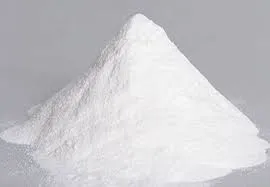
Sep . 28, 2024 22:38 Back to list
Exploring Diverse Applications of HPMC in Modern Industries and Technologies
Exploring the Applications of HPMC in Modern Industries
Hydroxypropyl Methylcellulose (HPMC) is a versatile and widely used cellulose ether derived from natural cellulose. Thanks to its unique properties, HPMC serves as an essential ingredient across various industries, including pharmaceuticals, food production, cosmetics, and construction. In this article, we will delve into the multifaceted applications of HPMC, highlighting its significance and advantages in each field.
Pharmaceutical Applications
One of the most notable applications of HPMC is in the pharmaceutical industry. HPMC is an important excipient used in the formulation of oral dosage forms, such as tablets and capsules. Due to its film-forming properties, HPMC can create controlled-release formulations, enhancing the bioavailability of active ingredients by regulating their release rate in the digestive system. This feature is particularly advantageous for patients who require consistent therapeutic effects over extended periods.
Additionally, HPMC is commonly used as a binder and thickening agent in pharmaceutical formulations. Its ability to dissolve in both hot and cold water provides flexibility in formulation design, making it suitable for various dosage forms, including gels and suspensions. Furthermore, HPMC is utilized in the production of ophthalmic products due to its excellent wetting and lubricating properties, which help to maintain hydration in the eye.
Food Industry Applications
In the food industry, HPMC functions as a thickener, emulsifier, and stabilizer. It is often incorporated into food products to enhance texture and mouthfeel while reducing calorie content. For instance, HPMC has found a place in low-fat and gluten-free formulations, acting as a substitute for fat and gluten without compromising quality. This is particularly useful in products such as ice creams, sauces, and dressings, where it helps maintain viscosity and stability.
The food industry also benefits from HPMC’s water-retention properties. By retaining moisture, HPMC helps extend the shelf life of baked goods and minimize staleness. Moreover, it is used in the production of vegetarian and vegan products as a binding agent, helping to replace traditional binding agents like eggs.
hpmc applications

Cosmetic and Personal Care Products
In the realm of cosmetics and personal care, HPMC is a key ingredient in creams, lotions, and gels. Thanks to its emulsifying properties, HPMC helps stabilize oil-in-water emulsions, ensuring a smooth and consistent texture in skincare products. Its ability to act as a film-forming agent also contributes to the efficacy of cosmetic formulations, providing a protective barrier on the skin that enhances moisture retention.
HPMC’s gentle nature makes it suitable for sensitive skin applications, offering thickness and stability without causing irritation. Additionally, its use in hair care products enhances the manageability and shine of hair while providing necessary hold in styling gels and sprays.
Construction Industry Applications
The construction industry has also embraced HPMC, particularly in the formulation of adhesives and sealants. HPMC enhances the workability and adhesion strength of products like tile adhesives, joint compounds, and mortar. Its water-retention properties ensure that these materials remain workable for extended periods, allowing workers ample time to position tiles or apply finishes without premature drying.
Moreover, HPMC contributes to the durability of construction materials by improving their resistance to cracking and shrinkage. Its presence in formulations enhances the overall performance and longevity of construction products, making it a valued component in building and construction applications.
Conclusion
In summary, Hydroxypropyl Methylcellulose (HPMC) is a multifunctional compound that plays a crucial role across various industries. Its unique properties—such as film formation, thickening, and emulsification—make it an invaluable ingredient in pharmaceuticals, food production, cosmetics, and construction. As industries continue to evolve and innovate, the applications of HPMC are likely to expand, highlighting its significance in modern manufacturing and product formulation. The versatility and effectiveness of HPMC ensure its place as a staple in these diverse fields, driving advancements and meeting the needs of consumers.
-
Versatile Hpmc Uses in Different Industries
NewsJun.19,2025
-
Redispersible Powder's Role in Enhancing Durability of Construction Products
NewsJun.19,2025
-
Hydroxyethyl Cellulose Applications Driving Green Industrial Processes
NewsJun.19,2025
-
Exploring Different Redispersible Polymer Powder
NewsJun.19,2025
-
Choosing the Right Mortar Bonding Agent
NewsJun.19,2025
-
Applications and Significance of China Hpmc in Modern Industries
NewsJun.19,2025







